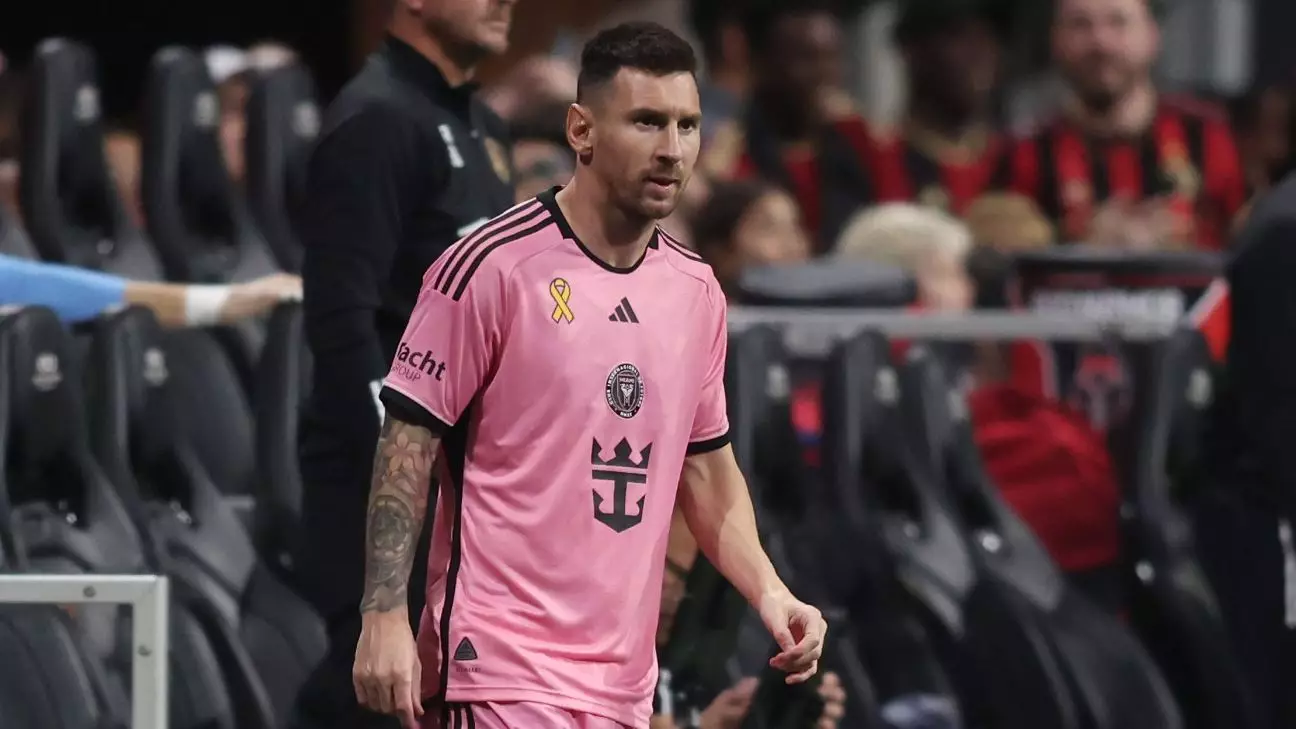Lionel Messi’s presence in Major League Soccer (MLS) has been a game-changer for Inter Miami, pulling in fans and raising the club’s profile significantly. However, during a recent match against Atlanta United, Messi was relegated to the bench for the first half, which raised eyebrows among fans and analysts alike. Coach Gerardo Martino cited the need to manage Messi’s workload as he returns from injury, highlighting the complexities of balancing player fitness with team performance. This decision appears strategic, aiming to prevent future injuries and maintain both the player’s stamina and overall team success in a congested fixture schedule.
Messi’s substitution into the match in the 61st minute was met with jubilant applause from the audience of 67,795 at Mercedes-Benz Stadium. His entrance was expected—an electrifying moment that invigorated not just Miami but the entire stadium. Just two minutes before he came into play, Miami took the lead once again thanks to a sensational deflected goal from Leonardo Campana, suggesting that Messi’s absence initially didn’t deter Miami’s attacking vigor. Yet, even as Messi attempted to change the game, the undeniable disappointment lingered as a late equalizer from Atlanta’s Aleksei Miranchuk nullified Miami’s efforts.
The 2-2 outcome against Atlanta United was a significant departure from Miami’s prior successes, ending a five-match winning streak in MLS. This draw places emphasis on the fluid dynamics of soccer; no lead is ever entirely secure. The game underscored Inter Miami’s ongoing struggles against teams that refuse to yield under pressure. Martino’s decision to bench key players such as Luis Suárez and Jordi Alba, alongside Messi, suggests a strategy oriented towards long-term performance rather than short-term gains. The philosophy appears to be preserving core players for critical matches ahead, especially as Miami seeks to capture the Supporters’ Shield and secure home-field advantage in the playoffs.
The introduction of Messi late in the game also surfaced conversations around his ongoing recovery process. Despite the Argentine maestro’s remarkable contributions—boasting 14 goals and 14 assists in just 14 appearances—his physical condition necessitates prudent management. It raises questions regarding the appropriate timing and integration of star players returning from injuries.
Looking ahead, Inter Miami faces yet another challenge as they prepare to face New York City FC. The club’s strategy and Messi’s impact will be crucial in determining both their playoff prospects and their chances of achieving historical success in the league. The intricacies of managing player health, optimizing performance, and fostering team cohesion remain pivotal at this juncture.
As Messi continues to navigate the dual challenge of returning from injury while leading his team to victory, one can’t help but reflect on the broader implications of his presence in the league. The heightened expectations surrounding his performance, coupled with the diverse tactical schemes at play, reveal a multifaceted picture of a team driven not only by individual brilliance but also by strategic acumen made necessary by the evolving landscape of professional soccer. Whether this approach will culminate in success remains to be seen, but all eyes will undoubtedly be fixed on Messi as he shapes Inter Miami’s destiny this season.

